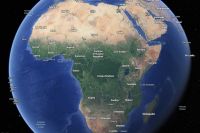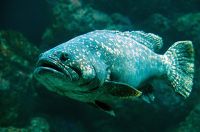Video recordings and the report of the webinar are now available. The webinar, held on 4 May 2022, was necessitated by the fact that Artemia production has been ongoing on the continent for more than four decades, similar to Asia, but without any distinctive levels of success. Diverse levels of Artemia activities in different African countries were presented, to take stock of where the continent is, explore opportunities and address the various challenges impeding the production and utilisation of Artemia for improved livelihoods and overall aquaculture development in Africa.
The Yellow Seas Fisheries Research Institute (YSFRI) will convene a free online Training Course on Mariculture Technologies in the Asia-Pacific Region from 19 to 23 September (please note the change of date). The course is organised by YSFRI, NACA, the Qindao Marine International Cooperation Center and the Asia-Pacific Fishery Commission. The training course will cover: Theory and technology for producing high-quality seed; New mariculture modes and technology; Nutrient regulation and feeding technology; Disease prevention and control technologies; Product processing and utilisation technologies. Applications close 5 September.
Artemia remains a critical feed source for larval fish and crustaceans, underpinning the hatchery production phase for around 10 million tonnes of aquaculture. Yet around 90 percent of current Artemia cysts are wild harvested from salt lakes. There is a need to assure the sustainable supply of Artemia cysts to support hatchery production, from both wild and farmed sources. The International Artemia Aquaculture Consortium has been establihed to explore opportunities in the conservation of Artemia biodiversity, the development of science-based protocols for sustainable harvesting of wild sources, strain selection and selective breeding. NACA will host the consortium.
An online forum will be held on 16 August to enable technical exchange between policymakers, fishery extension officers, researchers and entrepreneurs in development of the freshwater fisheries industry through technology innovation.
The forum will focus on innovations and developments in freshwater fishery biotech, breeding, culture models, digitisation, and industrialisation, featuring presentations and discussions from experts of international organisations, the Chinese Academy of Sciences, Chinese Academy of Engineering, universities and entrepreneurs in virtual exchanges and discussions. Participation is free but registration is required.
With the implementation of the new aquatic animal disease reporting in the Asia Pacific region from January 2021, and in lieu of the published QAAD Reports (last issue published was 4th quarter of 2020), NACA is publishing reported aquatic animal diseases submitted by countries in the Asia-Pacific region. This report covers the fourth quarter of 2021 and the original and updated reports can be accessed from the QAAD page.


